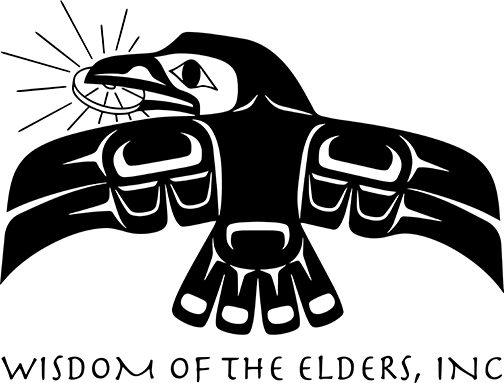
Nez Perce woman in the Palouse area of Washington prepares the camas harvest. Courtesy of William Gordon Casselman. http://www.billcasselman.com/canadian_garden_words/cgw_two.htm
Valerie Albert and Karen Zachary
with Rose High Bear
Arlie Neskahi:
Since Columbus, epidemic disease has devastated Native American communities. Today, many of those diseases have disappeared. One, however, is just now approaching epidemic proportions. It is type II diabetes. One in seven native people over 19 have it. And there is no cure. But, with proper care, increased exercise and changes in diet, diabetes can be controlled. In today’s health and healing, Rose High Bear explores some of the ways the Nez Perce people are fighting back.
Rose High Bear:
Since the 1940s, the rate of diabetes among Native people has steadily grown, and is still growing.
Valerie Albert:
We don’t eat anything like we used to eat. We used to eat a lot of roots that were high in nutrition and fiber. We worked hard, and so what food we did eat, we used it.
Rose High Bear:
Valerie Albert works at the Nimiipuu health clinic in Lapwai, Idaho. An enthusiastic warrior in the battle against diabetes, Valerie takes each case as a personal challenge.
Valerie Albert:
And I get real excited about it. For every moment that they’re exercising and taking care of their self, they are possibly preventing damage to their system.
Rose High Bear:
Valerie introduces a cheerful woman of sixty-four named Karen Zachary, who has been struggling with diabetes for over twenty years.
Karen Zachary:
I got an asthma attack and pneumonia on top of that. And I had almost passed away. And that’s when they started me on insulin. My diabetes was full-blown then, just from being ill.
Rose High Bear:
Diabetes is an inablility of the body to produce or respond to insulin, a hormone that allows blood sugars to enter the cells and be used for energy. With the diagnosis of diabetes, Karen’s life came packaged in the clear liquid of a syringe.
Karen Zachary:
Me being diabetic? And I thought, “Well, I’ll get over this.” It was scary too.

Nimiipuu Health Center. Courtesy of Nez Perce Tribal Profile. http://www.npaihb.org/profiles/tribal_profiles/Idaho/Nez_Perce.htm
Rose High Bear:
In the health care community there has been a slow realization that education is essential in the war against diabetes. Health worker Valerie Albert:
Valerie Albert:
It’s um, hard to see somebody that um, you give the knowledge to but they’re not ready to accept they even have a problem. We talk about, “Well I’m borderline.” Well there’s, I don’t really believe there’s anything such as a borderline diabetic. You are or you aren’t. You know, it’s like, I’m either, you know, kind of pregnant or not pregnant.
Rose High Bear:
As part of their education program, the Nimipuu Health Clinic has started a talking circle so that diabetics can voice their concerns and share information.
Karen Zachary:
We just go in and talk and, and share stories or if we have a problem we bring that out and kind of release our tension. It helps me because I see somebody that’s maybe in worse shape or has more problems than I do. And each time I go to a meeting, or whatever they have, I learn something.
Rose High Bear:
Along with education, medical care and a more healthy diet, the most important part of treating diabetes is exercise.
Karen Zachary:
I thought, “Oh, I don’t feel like it today.” And then that’s when I figured that’s when I should be out there exercising. But it’s amazing how what few minutes exercise we do helps our sugar, you know.
Rose High Bear:
Valerie is producing an exercise video for those diabetics who are confined to a wheel chair.
Valerie Albert:
There’s actually a warm-up before they do stretches, so they can prevent injury. And then of course, we’ll do some reaching, you know, upper arm stretches. Behind the back stretches. And then eventually we’ll start using a towel um, to stretch their legs, because everybody has a towel in their house. So they don’t have to have any special equipment. So we’ll be doing some movements put to some drum music, just to get them going a little bit.
Karen Zachary:
Get the word out. Ask questions. Because it’s, like you said, a lot of people don’t come right out and ask questions.
Rose High Bear:
For Wisdom of the Elders, this is Rose High Bear.

